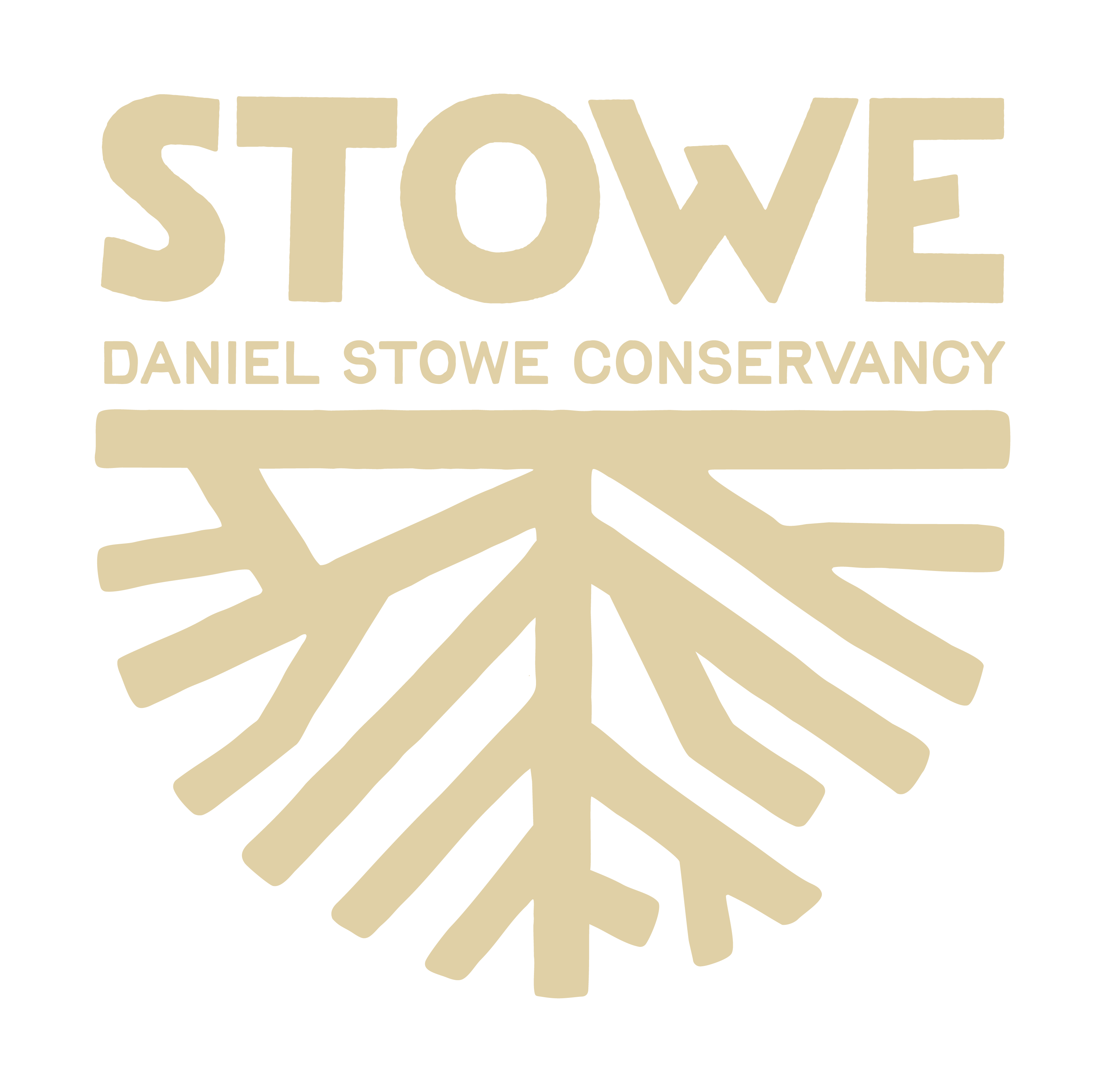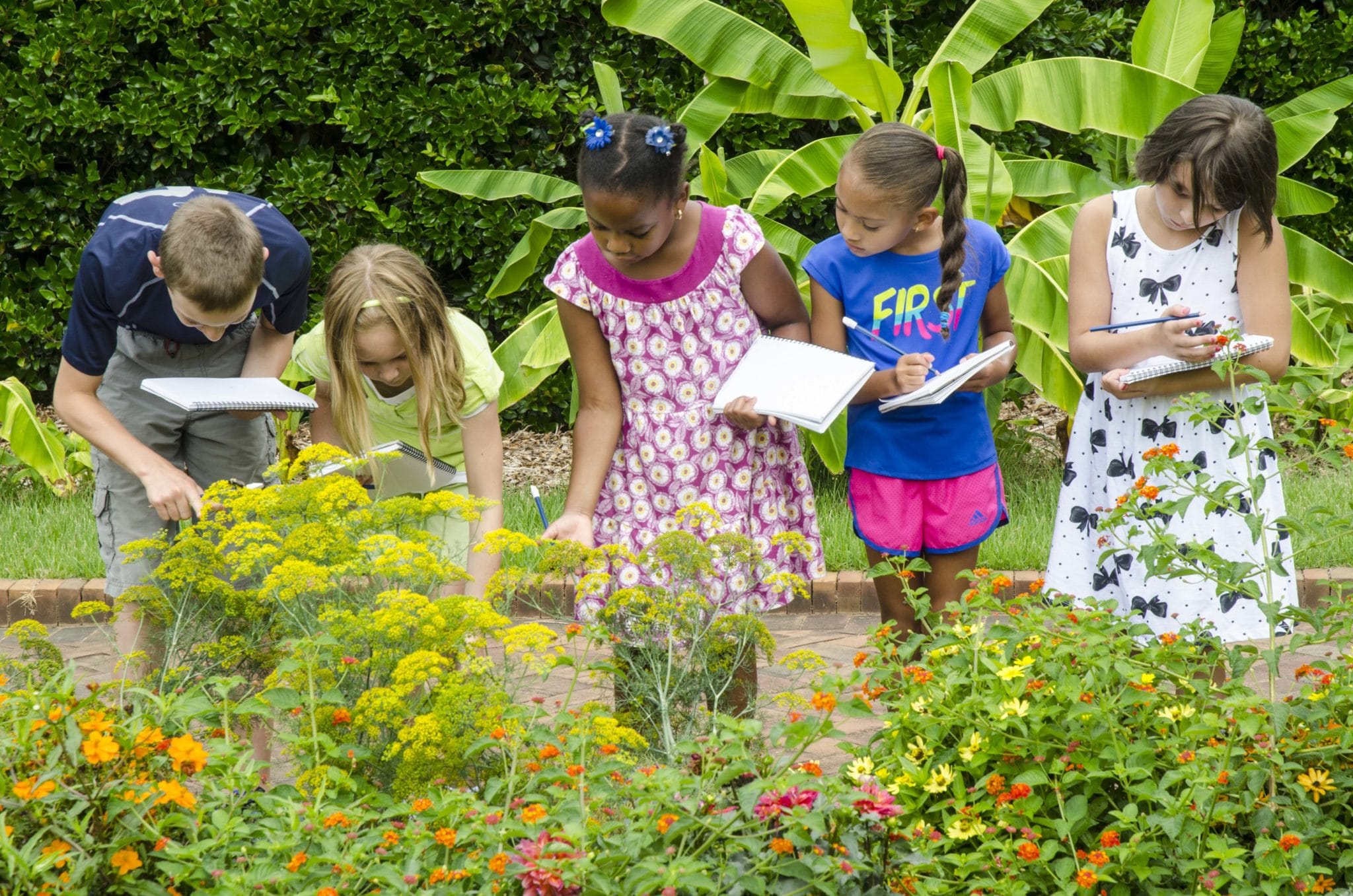Field Trips
Explore Daniel Stowe Conservancy with your group to experience 90 acres of spectacular gardens and living ecosystems, including the Lost Hollow Kimbrell Children’s Garden, the Adventure Trail, a tropical plant conservatory, a Piedmont Prairie, annual and perennial displays and more. From field trips covering insects to forest habitats to plant life to custom programs designed for your learning standards, field trips at Stowe fully immerse students in the beautiful, wild world around us.
To design a custom field trip to meet specific learning standards and supplement classroom learning, please reach out to Education Manager Jennings Storie.
Current Field Trip Offerings
Adventure Trail
Step off the beaten path and into a world of curiosity, creativity and connection with nature! Students will scale rocks, explore creeks and discover a variety of habitats around them in this nature play based program.
Grades Pre K-3 | 90 minutes
Key Concepts: nature-play, sensory engagement, exploration and discovery, environmental stewardship
Eggs, Frogs + Tadpoles…Oh My!
Journey through the life cycle of a frog as we explore their characteristics, diet and habitats. Search for frogs at different life stages in the Garden’s ponds and discover what they needto thrive.
Grades Pre K-4 | 60 minutes
Key concepts: animal life cycles, amphibians, adaptations, habitats, pond exploration, characteristics and anatomy of frogs.
Insect Investigation
Grab your magnifying glass! Students will discover insect characteristics, explore metamorphosis and learn about the importance of pollinators throughout the Garden.
Grades K-4 | 60 minutes
Key concepts: insect life cycle, metamorphosis, anatomy and characteristics of insects, common insects.
Trip to the Tropics
Discover the incredible diversity of tropical plants and their unique adaptations, from drip tips to waxy surfaces. Kids will explore their surprising uses and even visit the William H. Williamson Conservatory!
Grades 3-6 | 60 minutes
Key Concepts: ecosystems, plant adaptations, uses of plants, rainforests, habitats
Habitat Hike
Hike through the Daniel Stowe Conservancy forest to explore habitats, dig into ecosystems, identify native plants and animals and learn how they adapt to their environment.
Grades Pre K-8 | 60 minutes
Key Concepts: habitats, ecosystem, population, adaptations, food web, plant and animal relationships, biodiversity, native species, conservation
Pond Ecology
Investigate our Garden’s ponds, exploring their web of life by collecting samples and observing the diverse organisms that thrive in, on and around the water.
Grades 5-8 | 75 minutes
Key Concepts: research methods, insect life cycles, plant-animal relationships, adaptation, ecosystems, wetland habitats, water quality, stewardship
Butterfly Bungalow
Discover something new in the Butterfly Bungalow! Watch butterflies emerge from chrysalids, search for hungry caterpillars among the leaves, catch a butterfly on a feeding sponge and more. Please note that this field trip is only available in August and September; contact us to learn more.
Grades Pre-K-8 | 60 minutes
Key Concepts: metamorphosis, insects, habitats, life cycles
Plant Parts We Eat
Discover the parts of a plant—roots, stems, leaves, flowers, fruits and seeds—and learn how each part helps the plant grow. Then explore the garden to find plants we commonly eat and see which parts end up on our plates!
Grades 1-3 | 60 minutes
Key Concepts: fruit and vegetables, basic needs for plant growth, life cycles, plant parts and function
Adventure Trail Exploration
Extend your field trip with a guided journey along the Adventure Trail at Daniel Stowe Conservancy. Led by our knowledgeable staff, students will discover our unique outdoor nature play rooms—spaces designed for climbing, imagining, and engaging with the natural world through active play and exploration.
Add-Ons
Extend your students’ experience by 30-45 minutes with an additional enrichment activities led by a Garden Educator.
Wildflower Seed Ball Workshop
Enhance your field trip with a hands-on activity where students create their own wildflower seed balls to take home. Along the way, they’ll learn about the vital role pollinators play in our ecosystems and how planting native flowers can help support bees, butterflies, and other important wildlife.
Tropical Conservatory Tour
Discover characteristics of a tropical ecosystem and the highlights of the William H. Williamson Conservatory on this guided tour.
Sprout House
Add a touch of take-home science to your field trip as students build their own “Sprout Houses” by planting a seed in a clear zip-top bag. They’ll learn what seeds need to grow and get to watch the germination process day by day at home, nurturing their very own plant from sprout to seedling.


